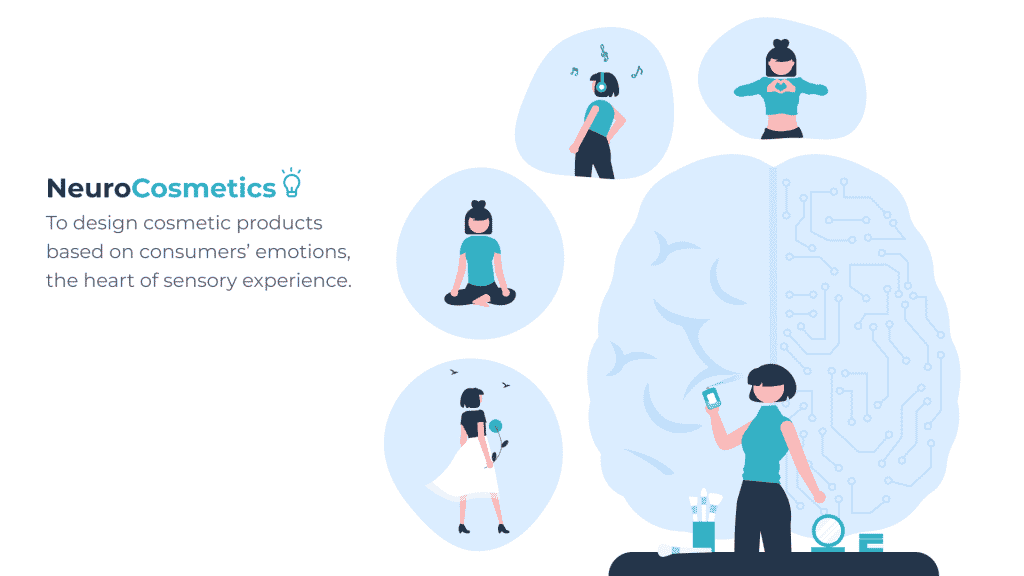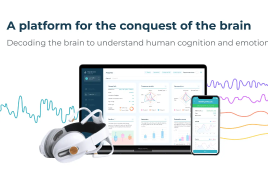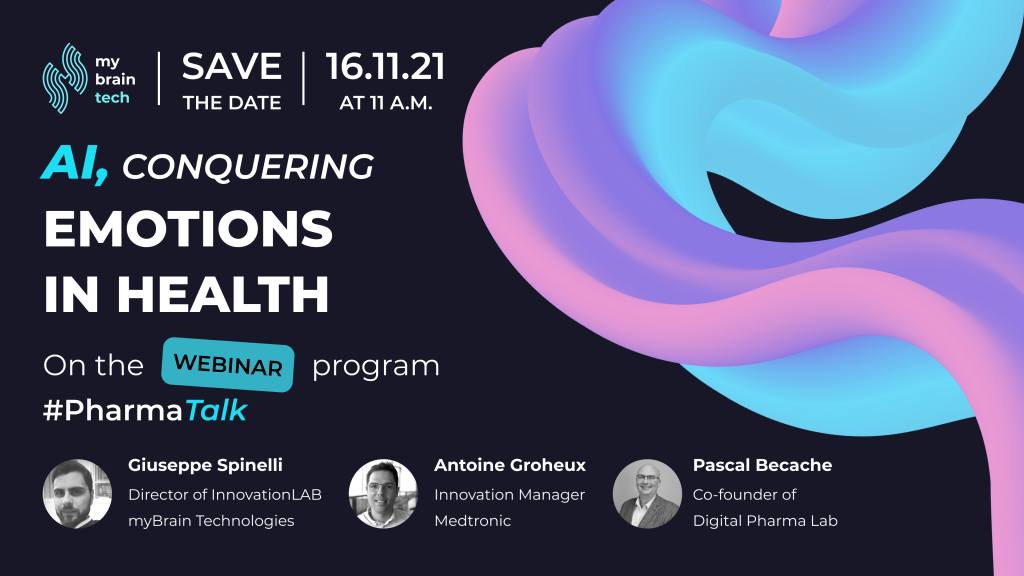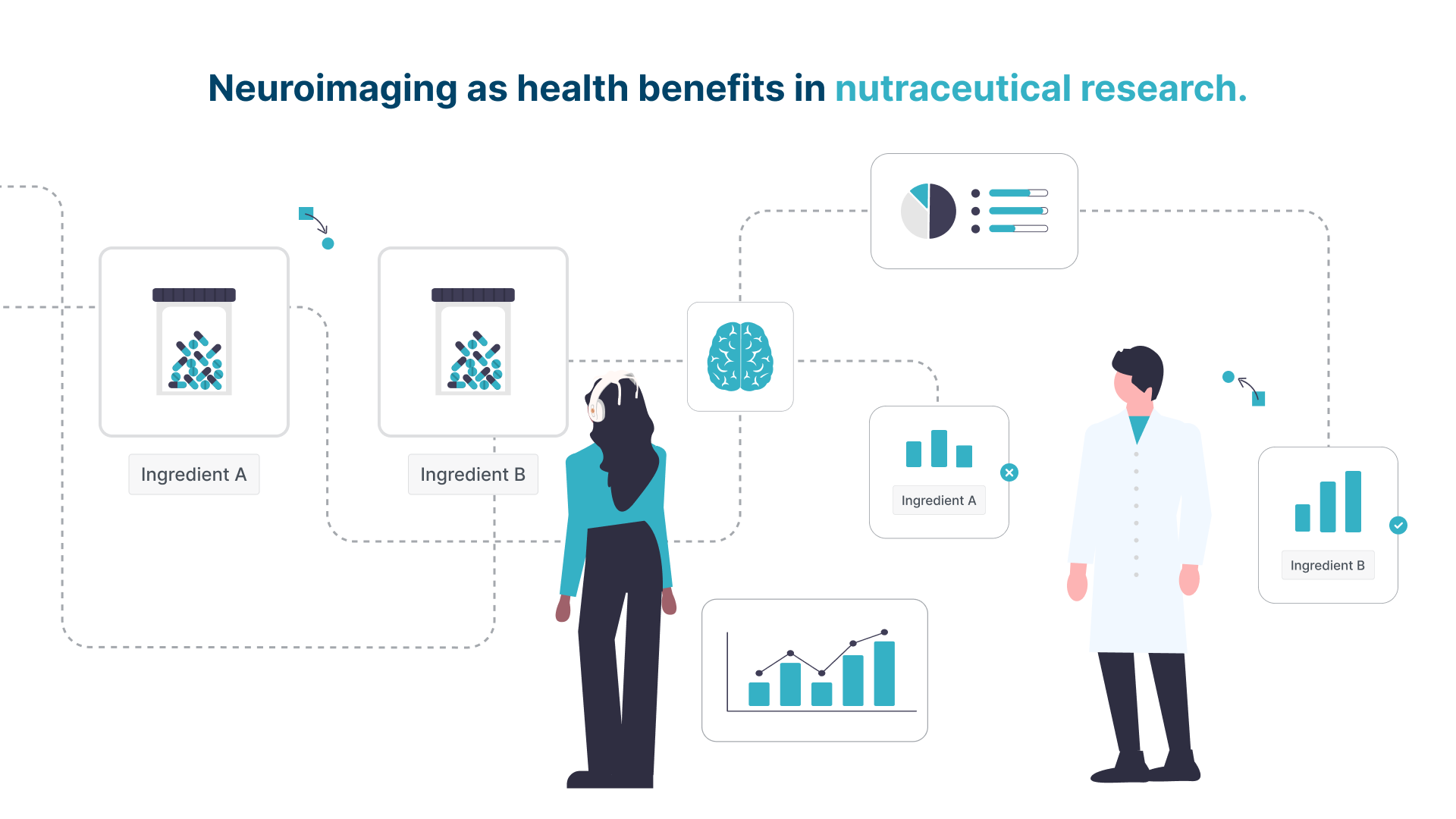
How neuroimaging will address health benefits in nutraceuticals research?
How neuroimaging will address health benefits in nutraceuticals research?
May 31, 2023 • 5 min read • Download article

Since the latest scientific advances in nutraceutical research have shed light on the links between our brain and digestive system, neuroimaging is becoming a key tool in the study of the impact of probiotics on our health and well-being. Monitoring the brain while taking probiotics will enable a better understanding of their effects on the brain, body and mind, and therefore on human health.
Neuroimaging to understand the impact of probiotics on Health and Well-being.
Understanding the role of diet ingredients as a modifiable risk factor for wellness improvement or brain diseases such as depression, anxiety and cognitive impairment, is key to ensure the ingredients effectiveness on health and high level customer experiences.
For example, the growing body (Carabotti & al., 2015[1]; Kim & al., 2019[2]) of evidence suggests that the bacteria in the gut microbiota can impact cognition and mood. The communication between the gut and the brain is believed to be bidirectional, involving neural, endocrine, immune, and microbial pathways. Factors such as diet, infection, stress, medication, and aging can influence the composition of the gut microbiome, which has been associated with psychiatric disorders like major depressive disorder. As a result, there is a hypothesis that manipulating the gut flora, such as through the use of probiotic supplements, could potentially affect brain function in psychiatric conditions and aging individuals.
Kim & al. (2019)[2] highlight the positive effects of probiotics on human health. Probiotics, which include live microorganisms like bacteria and yeast, have shown potential as adjuvant treatments for intestinal diseases. Clinical trials and in vivo experiments have expanded our knowledge of how probiotics influence the gut microbiome and associated diseases. Numerous studies have demonstrated that probiotics can influence the composition of the intestinal microbiota, potentially controlling various bowel diseases and promoting overall wellness.
Neuroimaging techniques, including ElectroEncephaloGraphy (EEG), are anticipated to gain popularity and be utilized more extensively in the future. These techniques are expected to find increasing application in various research areas related to nutraceuticals. To give you a short overview of studies from the last decades to 2023, we summarize some interesting studies in this article.
Research involving real-time monitoring of brain waves in response to probiotic intake.
The study conducted by Tillisch & al. (2014)[3] aimed to investigate the impact of consuming a fermented milk product with probiotics (i.e. FMPP) on the brain connectivity and responses to emotional attention tasks in healthy women. Functional Magnetic Resonance Imaging (fMRI) was used to assess brain activity before and after the intervention, including both task-related responses and resting brain activity. The results indicated that the intake of FMPP led to reduced task-related responses within a functional network comprising affective, viscerosensory, and somatosensory cortices. Additionally, changes in the intrinsic activity of the resting brain were observed, particularly in midbrain connectivity, which could potentially explain the observed differences in activity during the emotional attention task. In summary, the four-week consumption of FMPP influenced the activity of brain regions involved in the central processing of emotion and sensation in healthy women.
Takada & al. (2017)[4] examined whether Lactobacillus casei strain Shirota (LcS) improves sleep quality under psychological stress. They conducted a double-blind placebo-controlled trial in healthy 4th year medical students exposed to academic examination stress. Over a period of 8 weeks prior to and 3 weeks after a national standardized examination, a group of 48 subjects received a daily dose of 100 ml of LcS-fermented milk, while another group of 46 subjects received a non-fermented placebo milk. The study measured subjective anxiety levels, overnight single-channel electroencephalography (EEG) recordings, and scores from the Oguri-Shirakawa-Azumi (OSA) sleep inventory, which assesses subjective sleep quality. The results showed that the total OSA scores were significantly lower than the baseline on the day before the exam, indicating a decline in sleep quality induced by stress. However, the scores returned to baseline levels after the exam. The authors proposed that consuming LcS daily could help maintain sleep quality during stressful periods like exams. However, further research on a larger scale and over a longer duration is needed to better understand its effects. Although evidence indicates improved quality of life, this study should be expanded for a more comprehensive evaluation.
A more recent study conducted by Billeci & al. (2023)[5] was a randomized controlled trial that aimed to examine the effects of probiotics on EEG in preschoolers with autism spectrum disorder. The researchers investigated the potential modifications in brain electrical activity induced by probiotic administration in 46 children with autism. The study spanned over a 6-months period and included both clinical and biochemical measures. The results revealed significant correlations between neuromarkers derived from EEG measures and clinical/biochemical measures. These findings highlight the importance of further research on the benefits of probiotics in autism spectrum disorder to better understand the mechanistic connections between probiotic supplementation and changes in brain activity.
In conclusion.
All these studies present new insights over probiotics impact on human health and a better understanding of their effect on brain, body and mind. The gut-brain axis should be explored deeper as these researchers pave the way. As a future perspective we could also explore evidences provided by a new generation of biomarkers emphasizing the coupling of brain and gastric rhythms.
References.
[1] Carabotti, M., Scirocco, A., Maselli, M. A., & Severi, C. (2015). The gut-brain axis: interactions between enteric microbiota, central and enteric nervous systems. Annals of gastroenterology, 28(2), 203–209. https://pubmed.ncbi.nlm.nih.gov/25830558/
[2] Kim, S. K., Guevarra, R. B., Kim, Y. T., Kwon, J., Kim, H., Cho, J. H., Kim, H. B., & Lee, J. H. (2019). Role of Probiotics in Human Gut Microbiome-Associated Diseases. Journal of microbiology and biotechnology, 29(9), 1335–1340. https://doi.org/10.4014/jmb.1906.06064
[3] Tillisch, K., Labus, J., Kilpatrick, L., Jiang, Z., Stains, J., Ebrat, B., Guyonnet, D., Legrain-Raspaud, S., Trotin, B., Naliboff, B., & Mayer, E. A. (2013). Consumption of fermented milk product with probiotic modulates brain activity. Gastroenterology, 144(7), 1394–1401.e14014. https://doi.org/10.1053/j.gastro.2013.02.043
[4] Takada, M., Nishida, K., Gondo, Y., Kikuchi-Hayakawa, H., Ishikawa, H., Suda, K., Kawai, M., Hoshi, R., Kuwano, Y., Miyazaki, K., & Rokutan, K. (2017). Beneficial effects of Lactobacillus casei strain Shirota on academic stress-induced sleep disturbance in healthy adults: a double-blind, randomised, placebo-controlled trial. Beneficial microbes, 8(2), 153–162. https://doi.org/10.3920/BM2016.0150
[5] Billeci, L., Callara, A. L., Guiducci, L., Prosperi, M., Morales, M. A., Calderoni, S., Muratori, F., & Santocchi, E. (2023). A randomized controlled trial into the effects of probiotics on electroencephalography in preschoolers with autism. Autism : the international journal of research and practice, 27(1), 117-132. https://doi.org/10.1177/13623613221082710
Related Articles
Get in touch
We are glad you are interested in reaching out to us. Whether you have a question about our products or want to give us feedback, we are here to help.


